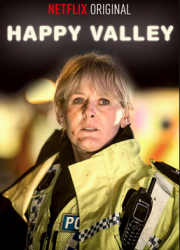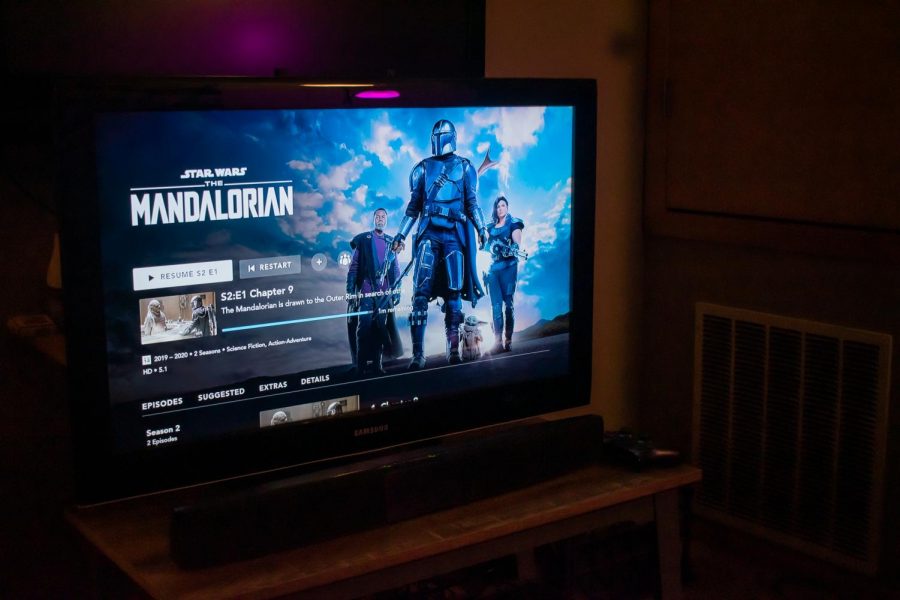
Netflix’s newest original show, “Happy Valley,” a miniseries created in collaboration with the BBC, may be ironically named, as every character is decidedly unhappy, but is one of the most compelling series to come out this fall season.
Set in the rural Yorkshire valley in Northern England, the six-episode first season of the show follows the converging narratives of Catherine Cawood (Sarah Lancashire), a tough and dedicated police officer, haunted by the suicide of her daughter and the recent release from jail of that same daughter’s rapist, and a Fargo-esque story of the kidnapping of Ann Gallagher (Charlie Murphy), a prominent businessman’s daughter, for ransom that spirals out of control.
The show begins with exposition and backstory which results in a marginally slow start plot-wise. But the limited number of episodes doesn’t do a disservice to the quality of the storytelling. As a miniseries, the show has to compress complex narratives that overlap and intersect in a time that is less than half as long as normal 13-episode dramas. And, picking up dramatically after its slow start, the show does just that. The first four episodes happen in the span of four days, the tension and suspense building as Catherine gets closer and closer to finding both her daughter’s rapist and the kidnapped Anne Gallagher. And while the last two episodes slow the pace down once again, acting almost like an extended epilogue, pinpoints of heightened tension continue to pop up until the very last minute of the show.
The show’s themes dig into deep issues about the nature of crime and justice in modern society and about how family is at the core of everything we do, for better or for worse. Catherine’s story is at the heart of it all. At first, the show seems too big for itself, touching on massive issues of crime, drugs, the possible corruption of the justice system and the burden or advantage of family. But when Catherine’s intimate and personal perspective is shown, that’s what gives the show that spark of life. And, ultimately, with Catherine as both the moral center of the show as well as a deeply flawed character, it gives the show the ability to say something substantial about the diversely unhappy lives of all of its characters.
While “Happy Valley” isn’t venturing into unknown territory with its tale about small-town crime, its short form and distinct characters transcend the common tropes and devices associated with the standard cop dramas and suspense thrillers. It also uses an interesting amalgam of attributes from a vast array of genres, melding everything from the relative monotony and procedural aspects of cop shows, to the intense interpersonal conversations between Catherine and her sister, Clare (Siobhan Finneran), that have the air of a family drama, and even to elements of the horror genre with Catherine’s panic-filled visions of her dead daughter.
If I had a concern with the show, it would be how at first glance, the plot begins as yet another crime drama/procedural that focuses on the violence against and victimization of women. Aside from Lewis (Adam Long), one of the kidnappers, and his friend who become casualties in Catherine’s daughter’s rapist and other kidnapper, Tommy’s (James Norton), quest to avoid being caught, the primary victims depicted in the story are women. The show strays dangerously close to an oversaturation of scenes depicting the vile and horrific crimes against the various women characters, most notably the treatment of Anne as she’s being held captive. But while “Happy Valley” toes the line, it never crosses it, perhaps because its point of view comes from a female cop (and because of its female creator/writer). But the show also benefits in this case from the mere six episodes. While Ann’s kidnapping and torture is difficult to watch, the show gives the viewer enough hints about her experience without actually showing too much. And by resolving the story by the end of the fourth episode and continuing Ann’s story in the final two episodes, making her into a fully complex character rather than just a victim, the show avoids crossing the line into fetishizing its female victims.
A second season has already been ordered for “Happy Valley,” but with such an effective and cohesive first season it’s hard not to be worried whether than same quality of storytelling can be continued in subsequent seasons. And although Sarah Lancashire’s undeniably captivating performance as Catherine might be enough to ease those worries, the first season is so personal to her character and resolved completely enough that it could be difficult to replicate that in the second season.
Regardless of where the show goes in the future, “Happy Valley’s” first season is a thrilling and fascinating bit of television. And it’s just an added bonus that the entire season is available to anyone with a Netflix login and a few hours to spare.




Laura Richardson • Nov 20, 2014 at 12:31 pm
If for no other reason than to see an extremely capable Sarah Lancashire, this series is worth the time.